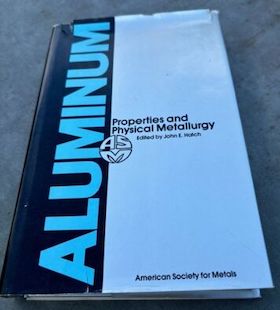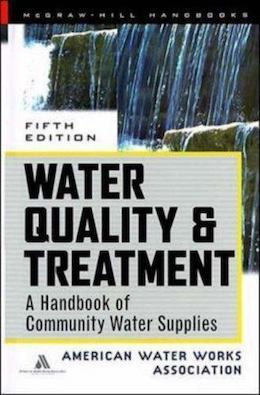
-----
Aluminum corrosion by DI water
Processes like distillation, reverse osmosis, or de-ionization (ion exchange) can be used to purify water. In the de-ionization method, the water is first passed through a column of cationic ion-exchange resin which has been preloaded with acid such that cations in the water are absorbed, with hydrogen taking their place; then the water flows through a column of anionic ion exchange resin and the anions are replaced with hydroxide ions. The result is rather pure water, roughly equivalent to distilled water.
But sometimes the water is subsequently passed through a "mixed bed" column. The water encounters a particle of cation resin, then a particle of anion resin, then cation resin, then anion resin ... with the sequence continuing tens of thousands of times. The result is super quality, ultrapure, non-conductive, "hungry" water. This is also called de-ionized water, but it is a very different thing than water which hasn't passed through a mixed bed.
Q. Have recently encountered problems regarding aluminum bond pads (in a chip), being eaten up by just pure dipping for 30 minutes to 1 hour in just pure DI water. Didn't think pure water can erode or etch. Anybody has explanation or answer?
Thanks,
Aubert Escio- Chandler, Arizona
2003
A. DI water, because of the high free Hydrogen ion concentration is VERY corrosive. DI water is so corrosive it cannot be used in iron pipes, and will certainly tear into aluminum. Try distilled water.
by John E. Hatch

on eBay or Amazon
or AbeBooks
(affil link)

Robert H Probert
Robert H Probert Technical Services
Garner, North Carolina

A. I hope you have found an answer to your problem. But I was reading and I have the answer. Your problem is a very common phenomenon in the semiconductor industry. Even though they use DI water in their process they have to inject CO2 to bring the resistivity of water down. This way the DI water is not corrosive and will not harm your metallization. This problem of metal etch will cause reliability problem for the device and potentially bonding problems.
Hope this helps.
Eric Prinz- Morgan Hill, California
Q. I am looking for topics on corrosion of aluminum copper leads with TiN in DI water. This is a problem during the water rinse after solvent clean. In fact I am looking for information of this affect with pH of DI water.
Allen PageSemiconductor - Richardson, Texas
2006
Q. You mentioned that DI water would corrode aluminium but in this compatibility chart it is showing that aluminium is compatible to deionised water. So, do you know why they are saying that or is it wrong?
Poojan ModiResearcher - Sydney, Australia
November 15, 2021
by American Water Works Association

on eBay or Amazon
or AbeBooks
(affil link)
A. Hi Poojan. I suspect that the problem centers around the phrase "deionized water". There is grocery store quality deionized water, which is obtained by passing water through a single cation exchanger then a single anion exchanger, and which is actually not very different in quality from distilled water -- it's just a different path to pretty much the same result. I would expect this to be no more corrosive than distilled water.
But if that deionized water is then passed through a mixed bed ion exchanger, where it experiences cation removal followed by anion removal followed by cation removal followed by anion removal repeated thousands of times in sequence it can become "ultrapure" deionized water suitable for use on semiconductor circuitry. This water is indeed very "hungry" for restoration of at least a few ions and is quite corrosive.
Luck & Regards,

Ted Mooney, P.E. RET
Striving to live Aloha
finishing.com - Pine Beach, New Jersey
Ted is available for instant help
or longer-term assistance.
Q, A, or Comment on THIS thread -or- Start a NEW Thread